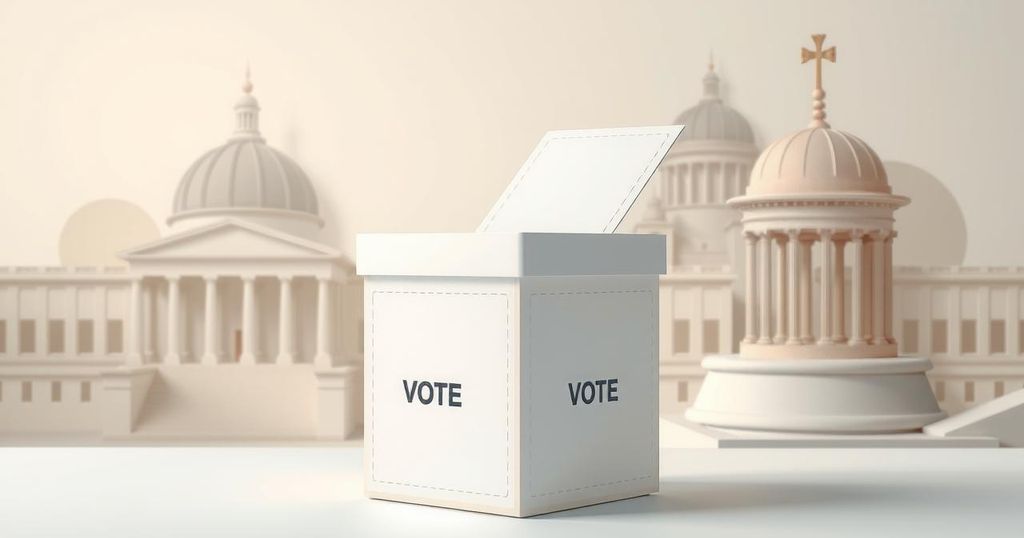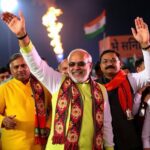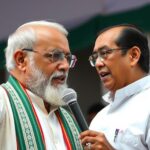Delhi Assembly Election Results: AAP vs BJP in High-Stakes Contest
The counting of votes for the Delhi Assembly elections will occur on Saturday, indicating whether the AAP retains power or if the BJP returns after 27 years. Exit polls suggest a BJP edge, while the AAP asserts its victory under Arvind Kejriwal’s leadership. Allegations of corruption between the parties have arisen, highlighting the intense political atmosphere ahead of the counting.
The counting of votes for the Delhi Assembly elections is set to take place on Saturday, determining if the AAP retains power for a fourth consecutive term or if the BJP establishes its government in the national capital after a 27-year hiatus. Additionally, the Congress party is hoping to gain some seats after previously failing to secure any in the last two elections.
Recent exit polls suggest a favorable outcome for the BJP, which has been attempting to regain a foothold in Delhi since losing power in 1998. The counting will commence at 8 AM, with early trends anticipated shortly after. Approximately 60.54 percent of eligible voters participated in the election held on Wednesday.
Delhi BJP president Virendra Sachdeva has confidently projected that his party will achieve close to 50 seats in the Assembly. Conversely, the AAP has dismissed the exit polls, asserting that it will continue to govern under convener Arvind Kejriwal for another term.
To ensure an impartial counting process, the Chief Electoral Officer of Delhi, Alice Vaz, announced that about 5,000 personnel, including supervisors and support staff, would oversee the vote tallying. Additionally, a random selection of five VVPATs will be scrutinized in every constituency to enhance transparency.
A developing controversy emerged when Lt Governor VK Saxena ordered an Anti-Corruption Branch probe following accusations from AAP leaders that the BJP attempted to entice their candidates with offers of substantial bribes and ministerial positions.
In response to the allegations, the BJP has focused on demanding that the AAP retract its claims and issue an apology or face possible legal confrontation. Delhi BJP general secretary Vishnu Mittal has formally requested an ACB investigation into AAP’s charges on these matters.
In a meeting held prior to the elections, Chief Minister Kejriwal expressed confidence that the AAP would successfully form a government, suggesting that opposition claims of success derived from exit polls were intended to apply psychological pressure on voters.
Historically, the AAP has established significant dominance in Delhi, winning 67 of 70 Assembly seats in the 2015 elections and 62 seats in 2020. A victory for the AAP would solidify Kejriwal’s influence in Delhi and potentially elevate his political positioning on a national scale.
Conversely, if the BJP secures victory, it will break the AAP’s prolonged tenure and reclaim governance in Delhi. The Congress party, which previously held power for 15 consecutive years until 2013, is striving to recover from recent defeats and regain representation in the Assembly.
The Delhi Assembly elections represent a significant political event, as they could either reinforce the AAP’s existing dominance or allow the BJP to reclaim power after a lengthy absence. This election is particularly pertinent given the AAP’s previous electoral successes and the BJP’s determination to reestablish its presence in the national capital. The electoral landscape has also been influenced by allegations of corruption and attempts at political maneuvering, further complicating the dynamics between competing parties.
The upcoming vote counting in the Delhi Assembly elections is pivotal, as it will reveal whether the AAP can maintain its majority or if the BJP will return to power after decades. The ongoing allegations and various party strategies underline the high stakes involved in this contest, with the Congress aiming for a resurgence amid the two-party rivalry.
Original Source: www.ndtv.com







Post Comment